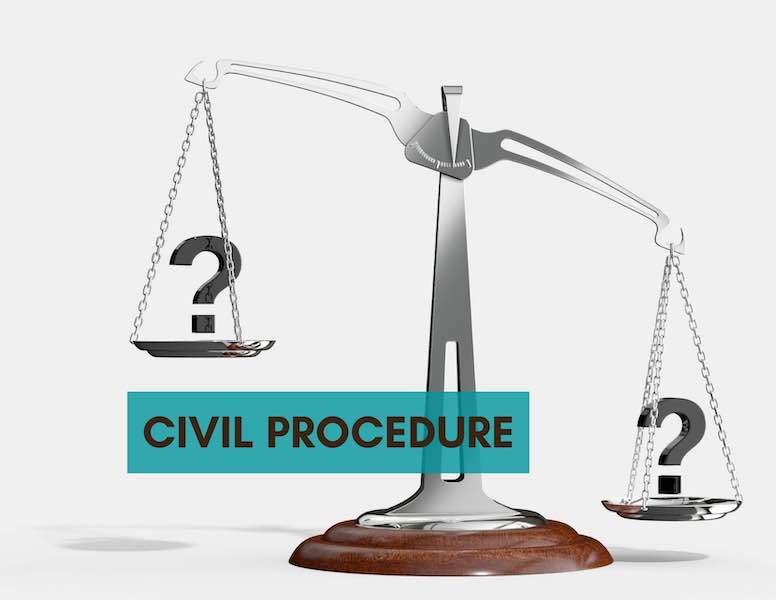Stay of Execution: Hitting the Pause Button on a Court Judgment
by Voon Su Huei ~ 1 September 2020
Picture this scenario. You are the registered owner of a piece of land and you have been involved in lengthy High Court proceedings pertaining to the said land. Finally, proceedings come to an end and you find that a court judgment has been entered against you. Perhaps, for example, you have been ordered to deliver vacant possession of your property as the court found that your opposing party is the lawful owner of the land instead.
Dissatisfied with this outcome, you lodge an appeal to the Court of Appeal. What becomes of the High Court judgment then? Are you still bound to deliver vacant possession of your property before your appeal is heard?
The short answer is Yes. You do need to comply with a court judgment.
The mere filing of an appeal does not relieve you of such obligations. However, in a situation like this, it may be prudent for you to apply to the court for a stay of execution. If the stay of execution is granted, it means that the opposing party is temporarily restrained from enforcing the court judgment against you, usually until your appeal is disposed of.
Stay of Execution
A stay of execution is not granted by the court as of right, for a good reason. After all, litigants would have expended significant time, costs and effort in pursuing their legal remedies. Therefore, the court does not ordinarily deprive successful parties of the fruits of their litigation, notwithstanding the fact that an appeal may have been filed.
The discretion of whether to grant a stay of execution or not is vested in the court. As a rule, the court will only grant a stay of execution if the applicant passes the “special circumstances” threshold. The seminal decision on this point is the Federal Court authority of Kosma Palm Oil Mill Sdn Bhd & Ors v Koperasi Serbausaha Makmur Bhd[1]. It is incumbent upon the applicant to justify via affidavit evidence what special circumstances exist to warrant a stay of execution of a valid court judgment.
Special Circumstances and Land as a Subject Matter
Various factors can constitute “special circumstances” and there is no finite list as such. The court is thus at liberty to consider the individual factual matrices of each case before it. A paramount factor that the court considers is whether the appeal, if successful, would be rendered nugatory if the stay of execution is not awarded. A successful appeal rendered nugatory means that the outcome of the appeal is essentially not worth anything because the victorious appellant cannot be restored to his or her original position prior to the appeal. A common instance of this is usually found when land is the subject matter of the appeal. Land is seen as unique. If it is evident that a plot of land will be transferred away or sold off by the opposing party pending the disposal of an appeal, this could well make the appellant’s appeal nugatory if the loss of land is irrecoverable. This is usually a suitable situation for a stay of execution to be granted. See the High Court decision of Ambank (M) Bhd v Mujur Zaman Sdn Bhd & Ors[2].
When it comes to land, the court will also assess if the property has any sentimental value whatsoever to an applicant applying for a stay of execution. The court would ask whether the applicant is concerned about losing the land per se or whether the applicant can, in fact, be compensated in financial terms if the appeal were successful. In short, the more an applicant can demonstrate the importance of land, for instance by showing that the property is a residential home or an ancestral property, the higher the chances the applicant would have in obtaining an order for a stay of execution.
It should come as no surprise then that the mere fact that the basis of an appeal concerns land does not automatically mean the court is obliged to grant a stay of execution. As per the Court of Appeal decision of Univein Sdn Bhd v. Malaysia Building Society Bhd[3], if a piece of land is mere commercial property without any sentimental value attached to it, and where the applicant can be adequately compensated based on the commercial value of the land if the appeal is successful, the court is unlikely to grant a stay of execution.
The court will also not grant a stay of execution where an applicant has no special purpose for the land involved. In the High Court judgment of Koh Hooi Siang (menyaman sebagai pentadbir harta pusaka Low Yew Sun) & Ors v Tay Yew Chong[4], the defendant/appellant had property transferred to him by way of a Sale and Purchase Agreement entered into between him and the Deceased. The plaintiff/respondent argued that the transfer should not have been done and that the property should be returned to him as the executor of the Deceased’s estate. Judgment was entered in favour of the plaintiff/respondent and the defendant/appellant applied for a stay of execution pending his appeal to the Court of Appeal. The application for a stay of execution was dismissed. The court held that firstly, the defendant/appellant had no special use of the land. Secondly, the grant of a stay of execution would put the plaintiff/respondent in the exact same position before the High Court order and cause him to suffer further losses. On the contrary, the defendant/ appellant could be financially compensated if the appeal were successful.
Circling back to the example at the beginning of this article, the likelihood of you getting a stay of execution on the court judgment to deliver vacant possession of your property pending the appeal thus depends on inter alia (i) the nature of the property, (ii) whether there is any special use for the property, (iii) whether the property is likely to be dissipated to a third party if it is given up and (iv) whether you can be compensated in monetary terms if the property is transferred away but you then succeed in your appeal.
A Note on Monetary Judgments
When it comes to court judgments involving a pure monetary award, it is often more difficult to argue for a stay of execution of the same. In other words, the court will usually demand that the judgment debtor pays the judgment creditor the sum stipulated in the court judgment. This may be the case even if a large amount of money is involved, such as the RM25,892,000 involved in the case of Wu Shu Chen Raja Zainal Abidin bin Raja Hussain & Anor[5]. If the judgment sum is not paid, this may open the judgment debtor to execution proceedings like garnishee proceedings, writ of seizure and sale, judgment debtor summons etc.
Of course, what amounts to “special circumstances” is assessed on a case-by-case basis. If the applicant can show that the opposing party is insolvent and would fail to reimburse the judgment sum and pay damages to the appellant if the appeal were successful, then a stay of execution might be justified. Alternatively, if the monetary judgment, if paid, would go to a foreign jurisdiction where recovery of the same might be difficult, that can also amount to special circumstances[6].
In the event you do find yourself having to pay a sum stipulated in a monetary judgment and your appeal against the same has yet to be disposed of, it may be worth putting the sum into a joint stakeholders’ account held by solicitors of both parties in the interim. This is arguably one of the best ways to preserve both the status quo and the judgment sum, resulting in a win-win situation for all.

